
CONTENTS
6. Answer Keys
1. STRANGE NEWS THIS WEEK
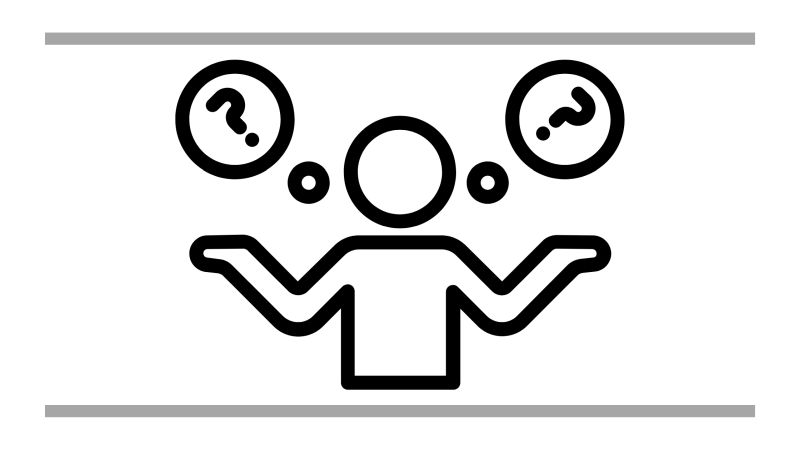
Squirrel Steals the Show at Local Festival
During a small-town apple festival in Ohio, USA, a squirrel managed to sneak into the pie-baking contest tent and nibble on several award-winning pies before being gently escorted out by organizers. The incident caused a stir when a viral video showed the squirrel dodging volunteers while clutching a piece of crust. Locals dubbed it the “Pie Bandit,” and the festival ended up raising extra funds by selling “Squirrel Pie” T-shirts.
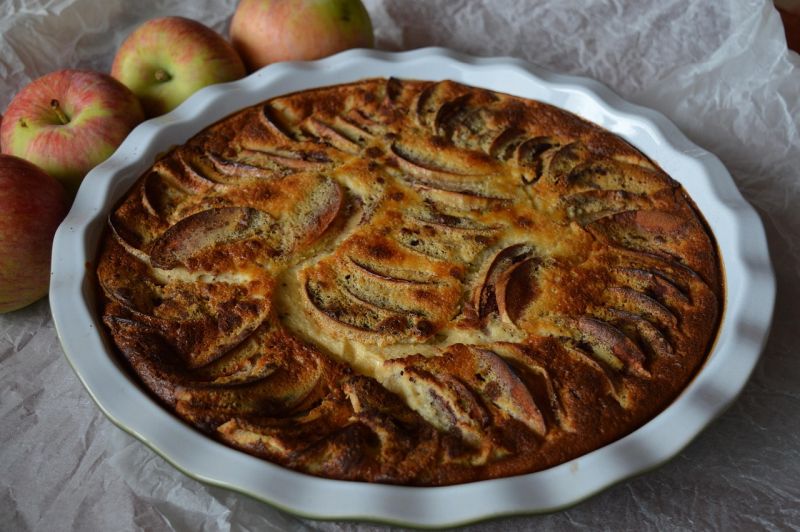
Vocabulary exercise
Read the definitions of words and phrases. Then complete each sentence with one of the bold words or phrases.
a. small-town (adj.): related to or typical of a small, quiet community or place
b. (to) sneak (v.): to move quietly or secretly so you are not seen or heard
c. (to) nibble (v.): to eat something in small, gentle bites
d. award-winning (adj.): having received a prize or recognition for being the best in something
e. (to) escort out (v.): to guide or remove someone from a place, often politely or by force
f. incident (n.): an event, often unexpected or unpleasant
g. (to) cause a stir (v.): to create a strong reaction, surprise, or excitement among people
h. viral video (adj. + n.): a video that spreads quickly and widely online
i. (to) dodge (v.): to move quickly to avoid something
j. (to) clutch (v.): to hold something tightly, usually because you’re afraid or nervous
1. The security guard ____________ the man out of the theater.
2. She ____________ on a cracker while reading her book.
3. The cat doing backflips became a ____________ overnight.
4. He tried to ____________ out of the house without waking his parents.
5. The child ____________ her mother’s hand as they crossed the street.
6. The police are investigating the ____________ that happened last night.
7. She grew up with ____________ values and knew everyone in her neighborhood.
8. He ____________ the ball just in time to avoid being hit.
9. Her sudden resignation ____________________ in the company.
10. He wrote an ____________ novel that was translated into ten languages.
(Audio included with the answer key at the end of this lesson)
2. COUNTRY SPOTLIGHT: SPAIN
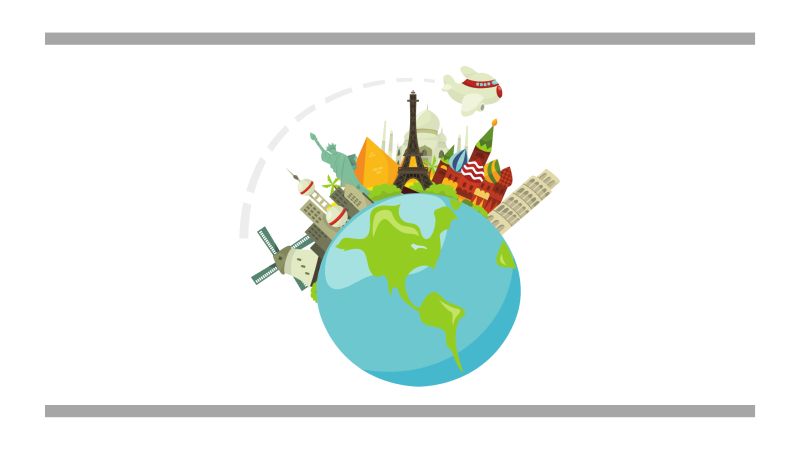
Video
Facts
- Geographical location: Iberian Peninsula
- Bordering countries: Portugal, France, Andorra; Morocco in North Africa; and the British Overseas Territory of Gibraltar
- Landscape: Pyrenees mountains and a central plateau
- Climate: Varies from Mediterranean in the south to more temperate in the north
- Population: Around 47 million
- Capital city: Madrid
- Other important cities: Barcelona, Valencia, Seville, and Bilbao
- Language: Spanish; regional languages such as Catalan and Basque
- Religion: Majority Catholic, with small minority populations of Protestants and Muslims
- Currency: Euro
- Cuisine: Famous dishes include paella and tapas
- Music: Flamenco, a music and dance style, is popular especially in the southern part of the country
- Famous tourist attractions: beautiful beaches, Alhambra palace in Granada, and the Sagrada Familia in Barcelona
- Interesting historical facts: The country was ruled by the Moors for over 700 years until the Christian reconquest in 1492.
Vocabulary Exercise
Read the definitions of words and phrases. Then complete each sentence with one of the bold words or phrases.
- paella: a Spanish dish of rice cooked with meat, seafood, and vegetables
- tapas: small portions of Spanish food that are served as snacks or appetizers
- dynasty: a series of rulers or leaders who are all from the same family
- ruled (by someone): controlled or governed by someone who has authority or power
- interior: the inside part of something, such as a building, a country, or a car
- rule (over someone): to control or govern someone who is under your authority or power
- appetizer: a small dish of food that is served before the main course of a meal
- regional: relating to or characteristic of a particular area or part of a country
- flamenco: a type of Spanish music and dance that involves guitar, singing, and clapping
- palace: a large and impressive building where a king, queen, or other important person lives or works
- She ordered an ________________ of cheese and crackers to share with her friends.
- The ________________ of the house was spacious and cozy, with a fireplace and a library.
- He cooked ________________ for his family on his birthday, using his grandmother’s recipe.
- She visited Buckingham ________________ in London and saw the changing of the guard ceremony.
- He enjoyed eating ________________ at a local bar, trying different dishes such as ham, cheese, and olives.
- There are different ________________ languages, cultures, and traditions in Spain.
- The country was ________________ by a dictator for many years until he was overthrown by a revolution.
- The queen ________________ over her subjects with kindness and wisdom.
- The Ming ________________ was one of the longest and most influential in Chinese history.
- She loves ________________ and wants to learn how to play the guitar and dance.
(Audio included with the answer key at the end of this lesson)
Place Name Exercise
Choose the correct words in parentheses to complete each sentence.
- The capital city of Spain is [Madrid / Barcelona / Valencia].
- Other major cities in Spain include [Seville and Bilbao / Catalan and Basque].
- Spain is surrounded by the Mediterranean Sea to the [east / west], and the Atlantic Ocean to the [east / west] and south.
- Spain shares borders with [Portugal / France] in the west, and by [Portugal / France] and Andorra in the northeast.
- Spain’s diverse landscape includes the central plateau region [on the coast/in the interior].
- The largest city in Spain is [Madrid / Barcelona].
- Spain is located on the [Siberian / Iberian] Peninsula in southwestern Europe.
- Tourist attractions in Spain include the Alhambra palace in [Barcelona / Granada] and the Sagrada Familia in [Barcelona / Granada].
(Audio included with the answer key at the end of this lesson)
Are you enjoying this lesson? Support us to keep it free for everyone – click on the “Donate” button …
… or go to this page:
3. THIS WEEK IN HISTORY
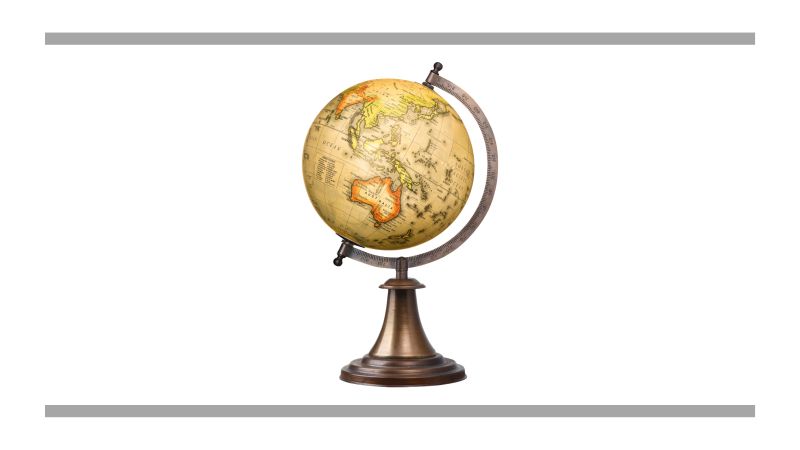
On July 14, 1789, French revolutionaries stormed the Bastille prison in Paris, a pivotal event marking the start of the French Revolution. This act symbolized resistance against monarchy and sparked widespread political change.
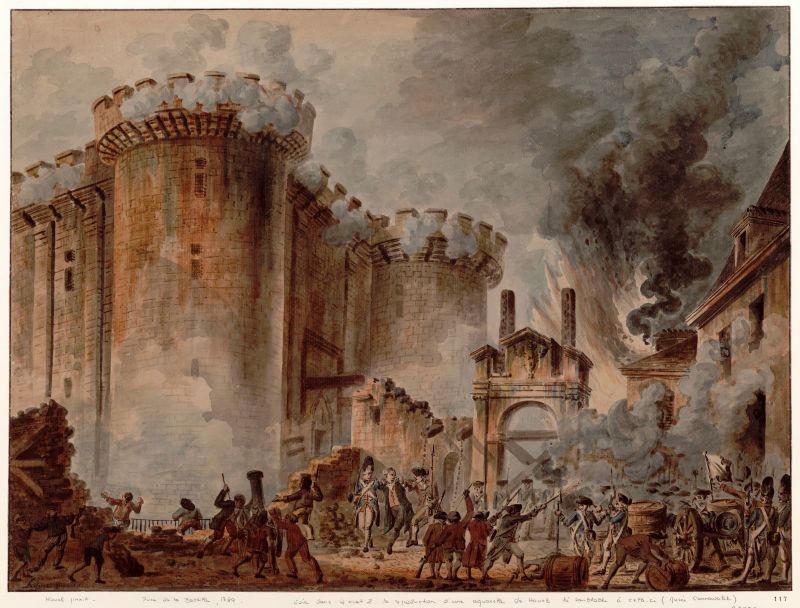
The Storming of the Bastille, 1789 (Jean-Pierre Houël)
Vocabulary exercise
Read the definitions of words and phrases. Then complete each sentence with one of the bold words or phrases.
a. revolutionary (n.): a person causing or supporting great political or social change
b. French Revolution (n.): a period (1789–1799) when the people of France overthrew the monarchy and changed the government
c. resistance (n.): refusal to accept something or an attempt to fight against it
d. monarchy (n.): a form of government with a king or queen as the ruler
e. political change (n.): a shift in how a country is governed or how power is used
1. There was strong ____________ to the new law.
2. The country had been a ____________ for centuries before becoming a republic.
3. The ____________ led the fight against the corrupt government and inspired thousands to join the cause.
4. The election brought major _________________ to the country.
5. The ___________________ led to the fall of the king and major political reforms.
(Audio included with the answer key at the end of this lesson)
On July 15, 1799, French soldiers discovered the Rosetta Stone in Egypt, an artifact with inscriptions in three scripts that enabled the deciphering of ancient Egyptian hieroglyphs.

Rosetta Stone
Vocabulary exercise
Read the definitions of words and phrases. Then complete each sentence with one of the bold words or phrases.
a. Rosetta Stone (n.): a stone with writing in three scripts that helped scholars read ancient Egyptian hieroglyphs
b. artifact (n.): an object made by humans, often from the past, that helps us learn about history
c. inscription (n.): words that are written or carved into something, usually stone or metal
d. script (n.): A set of written characters used for a particular language
e. (to) decipher (v.): to figure out the meaning of something difficult to read or understand
f. hieroglyphs (n.): pictures used as writing in ancient Egypt
1. The museum displayed ____________ from the Roman Empire.
2. The document was written in an old Greek ____________.
3. The ancient ____________ told a story about a king’s victory.
4. Egyptian ____________ were carved into the temple walls.
5. The _______________ was key to understanding ancient Egyptian writing.
6. It took years to ____________ the symbols on the tablet.
(Audio included with the answer key at the end of this lesson)
On July 16, 1945, the United States conducted the Trinity Test in New Mexico, detonating the first atomic bomb. This marked the dawn of the nuclear age and had profound global implications.
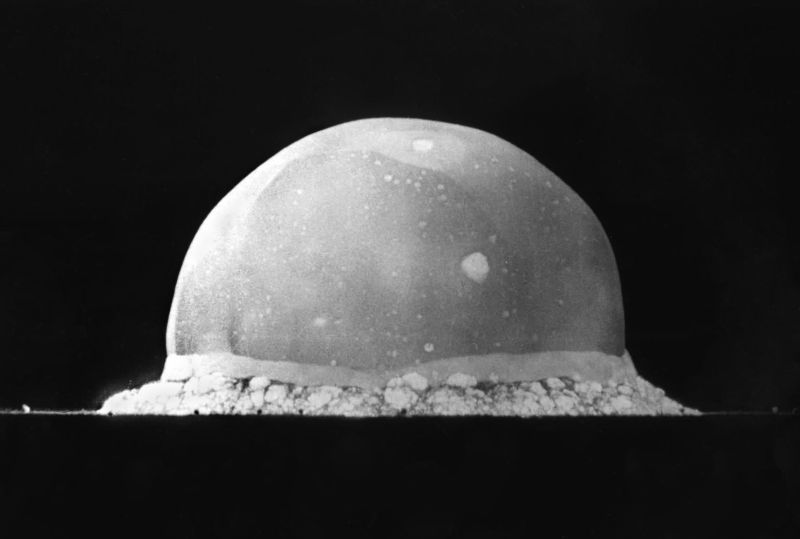
Trinity Site Explosion, 0.016 seconds after explosion, July 16, 1945
Vocabulary exercise
Read the definitions of words and phrases. Then complete each sentence with one of the bold words or phrases.
a. (to) conduct (v.): to organize and carry out something, such as an experiment or a mission
b. (to) detonate (v.): to cause something, like a bomb, to explode
c. atomic bomb (n.): a powerful weapon that uses nuclear energy to create an explosion
d. nuclear (adj.): relating to the energy released from atoms, especially in weapons or power plants
e. dawn of ________ age (phrase): the beginning of an important new period in history
f. profound implications (adj.+n.): serious and far-reaching effects or consequences
1. The ____________ changed the nature of warfare forever.
2. The first moon landing marked the ____________ space________.
3. Many countries debate whether to use ____________ power.
4. Scientists will ____________ tests to study the effects of radiation.
5. The discovery had ____________________ for science and medicine.
6. The army safely ____________ the bomb in the desert.
(Audio included with the answer key at the end of this lesson)
On July 17, 1955, Disneyland opened in California, becoming the first major theme park and a global symbol of entertainment and imagination.
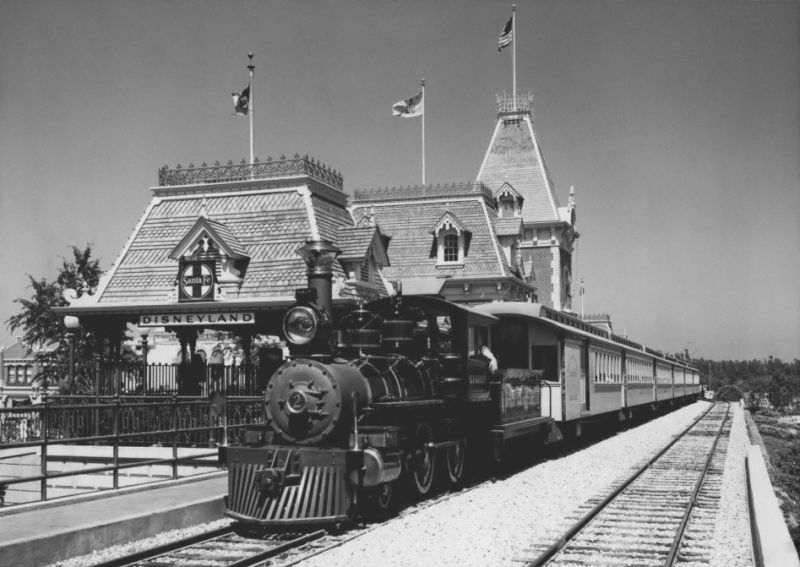
Disneyland Main Street station, July 1955
Vocabulary exercise
Read the definitions of words and phrases. Then complete each sentence with one of the bold words or phrases.
a. theme park (n.): a large area with rides and shows, often based on a particular idea or story
b. global symbol of ________ (phrase): a well-known image or idea that represents something worldwide
c. entertainment (n.): activities, shows, or performances people enjoy for fun
d. imagination (n.): the ability to think of new and creative ideas
1. Movies and concerts are popular forms of ____________.
2. They spent the day having fun at a famous ______________.
3. Children’s books help develop a child’s ____________.
4. The Eiffel Tower is a _________________ romance.
(Audio included with the answer key at the end of this lesson)
On July 18, 1976, Romanian gymnast Nadia Comăneci scored the first-ever perfect 10 in Olympic gymnastics history at the Montreal Games, redefining athletic excellence.
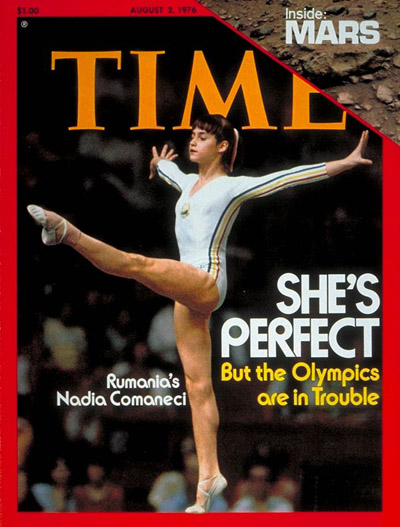
Nadia Comăneci on then cover of TIME magazine
Vocabulary exercise
Read the definitions of words and phrases. Then complete each sentence with one of the bold words or phrases.
a. gymnast (n.): a person who performs physical exercises on equipment like bars or beams
b. first-ever (adj.): the very first in history to happen or be done
c. gymnastics (n.): a sport involving exercises that show strength, balance, and flexibility
d. (to) redefine (v.): to change the meaning or understanding of something
e. athletic (adj.): physically strong, fit, or good at sports
1. She became the ____________ female president of the country.
2. He is very ____________ and plays several sports well.
3. Her performance ____________ what was possible in the sport.
4. The young ____________ won three gold medals.
5. He has been practicing ____________ since he was six.
(Audio included with the answer key at the end of this lesson)
On July 19, 1848, the Seneca Falls Convention began in New York, the first women’s rights convention in the U.S., launching the suffrage movement and advocating for gender equality.
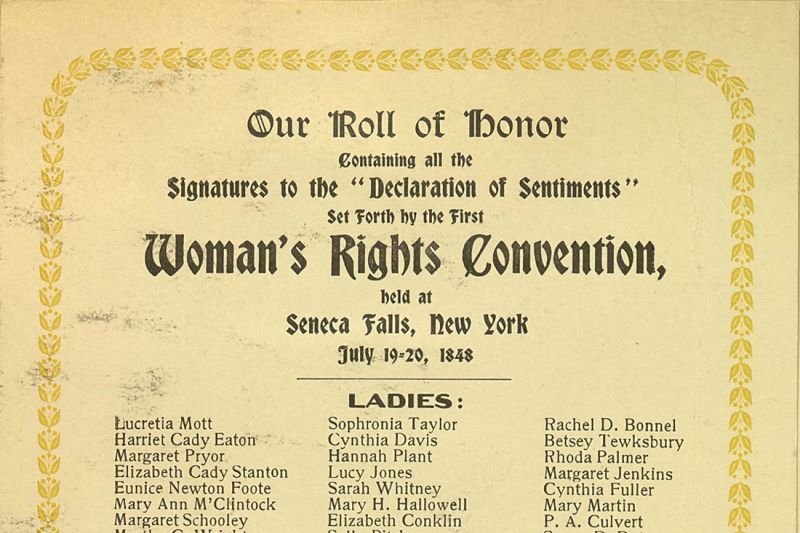
Signature page of the Declaration of Sentiments
Vocabulary exercise
Read the definitions of words and phrases. Then complete each sentence with one of the bold words or phrases.
a. convention (n.): a large formal meeting for a particular purpose, often political or social
b. women’s rights (n.): the rights and freedoms that women should have equally with men
c. suffrage movement (n.): a movement to gain the right to vote, especially for women
d. gender equality (n.): equal rights and opportunities for both genders
1. The fight for ____________ continues around the world.
2. Many workplaces are working toward _______________.
3. The __________________ achieved success in the early 20th century.
4. Activists gathered at the ____________ to discuss political reforms.
(Audio included with the answer key at the end of this lesson)
On July 20, 1944, German officers attempted to assassinate dictator Adolf Hitler in “Operation Valkyrie,” aiming to overthrow the Nazi regime. The failure led to severe reprisals.
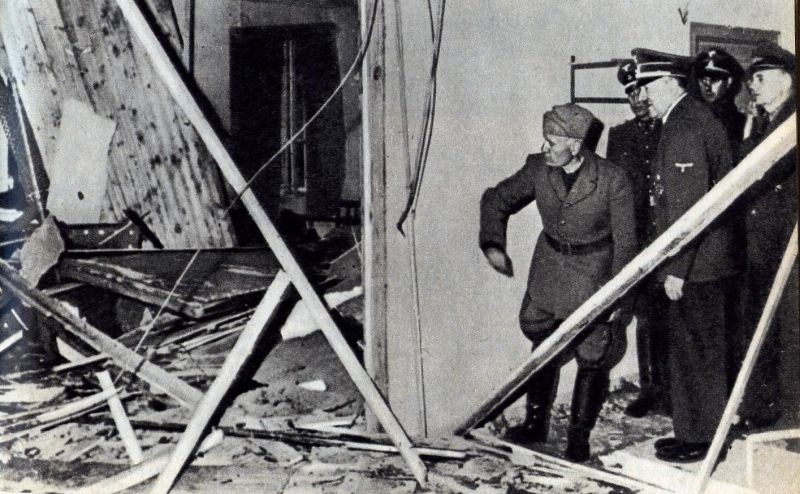
Hitler and Mussolini view the destroyed briefing room
Vocabulary exercise
Read the definitions of words and phrases. Then complete each sentence with one of the bold words or phrases.
a. (to) assassinate (v.): to kill someone important, usually for political reasons
b. dictator (n.): a ruler with total power, often ruling unfairly or violently
c. (to) overthrow (v.): to remove someone from power, usually by force
d. regime (n.): a government, especially one seen as controlling or not democratic
e. reprisal (n.): a violent or harmful action taken in return for something bad done to you
1. The people tried to ____________ the corrupt government.
2. The leader was ____________ during a public event.
3. The attack was seen as a ____________ for earlier bombings.
4. The ____________ was known for limiting freedom of speech.
5. The ____________ ruled the country with fear and violence.
(Audio included with the answer key at the end of this lesson)
4. GRAMMAR FOCUS

Historical event: On July 16, 1945, the United States conducted the Trinity Test in New Mexico, detonating the first atomic bomb. This marked the dawn of the nuclear age and had profound global implications.
PRESENT TENSES
Complete the sentences with the correct form of the verbs
Simple Present Tense: Examples: a) He walks to the shop every day. b) He lives near the shop. c) One plus one equals two.
The Trinity Test _________ (mark) the beginning of the nuclear age.
Present Continuous Tense: Example: He is walking to the shop.
Many scientists today ___________ (debate) the ethics of nuclear weapons.
Present Perfect Tense: Examples: a) He has walked to the shop many times. b) He has lived near the shop for ten years.
Nuclear technology _____________ (transform) global military strategy since the Trinity Test.
Present Perfect Continuous Tense: Examples: a) He has been walking to the shop for more than an hour. b) He has been going to the shop a lot lately.
Countries __________________ (develop) nuclear arsenals since the end of World War II.
(Audio included with the answer key at the end of this lesson)
PAST TENSES
Complete the sentences with the correct form of the verbs
Simple Past Tense: Example: He walked to the shop yesterday afternoon.
On July 16, 1945, the U.S. government _________ (detonate) the world’s first atomic bomb in New Mexico.
Past Continuous Tense: Example: He was walking to the shop when I saw him.
Scientists ______________ (observe) the blast from a distance when the bomb exploded.
Past Perfect Tense: Example: He had already walked to the shop when I saw him.
The bomb ______already______________ (be, test) in secret before they dropped it on Hiroshima in August 1945.
Past Perfect Continuous Tense: Example: He had been walking to the shop for over an hour when I saw him.
Researchers _________ (work) for years before the test finally took place.
(Audio included with the answer key at the end of this lesson)
FUTURE TENSES
Complete the sentences with the correct form of the verbs
Simple Future Tense: Example: He will walk to the shop this afternoon.
The Trinity Test _________ (remain) a controversial milestone in history.
Future Continuous Tense: Example: He will be walking to the shop by the time I go to work.
Historians ____________ (analyze) its impact for decades to come.
Future Perfect Tense: Examples: a) By the time I see him, he will already have walked to the shop. b) By this afternoon, he will already have walked to the shop.
By the end of this century, the test _________ (influence) nuclear policy for over 150 years.
Future Perfect Continuous Tense: Example: He will have been walking to the shop for an hour by the time you see him.
By 2045, the world _______________ (live) with nuclear weapons for a full century.
(Audio included with the answer key at the end of this lesson)
CONDITIONALS
Complete the sentences with the correct form of the verbs
First conditional: Example: If it rains, I will stay at home. (Real future possibility)
If nations _________ (reduce) their reliance on nuclear weapons, global tensions _____________ (decrease).
Second conditional: Example: If I won the lottery, I would quit my job. (Imagined present scenario)
If the Trinity Test _________ (be, conduct) today, it _________ (cause) massive public outrage.
Third conditional: Example: If I had studied harder, I would have passed the exam. (Unreal past situation)
If the scientists _________ (not succeed), the atomic bomb _________ (might, not use) in the war.
(Audio included with the answer key at the end of this lesson)
5. QUOTE OF THE WEEK

“Knowledge of languages is the doorway to wisdom.” ~ Roger Bacon
6. ANSWER KEYS
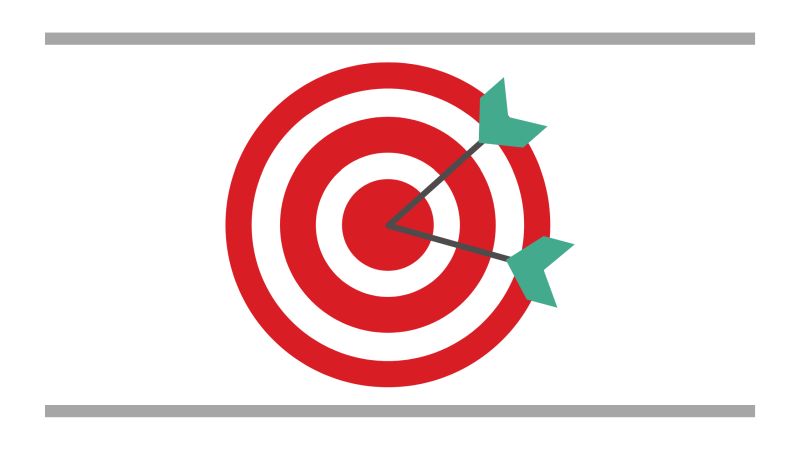
1. STRANGE NEWS THIS WEEK
Vocabulary exercise
Read the definitions of words and phrases. Then complete each sentence with one of the bold words or phrases.
a. small-town (adj.): related to or typical of a small, quiet community or place
b. (to) sneak (v.): to move quietly or secretly so you are not seen or heard
c. (to) nibble (v.): to eat something in small, gentle bites
d. award-winning (adj.): having received a prize or recognition for being the best in something
e. (to) escort out (v.): to guide or remove someone from a place, often politely or by force
f. incident (n.): an event, often unexpected or unpleasant
g. (to) cause a stir (v.): to create a strong reaction, surprise, or excitement among people
h. viral video (adj. + n.): a video that spreads quickly and widely online
i. (to) dodge (v.): to move quickly to avoid something
j. (to) clutch (v.): to hold something tightly, usually because you’re afraid or nervous
1. The security guard escorted the man out of the theater.
2. She nibbled on a cracker while reading her book.
3. The cat doing backflips became a viral video overnight.
4. He tried to sneak out of the house without waking his parents.
5. The child clutched her mother’s hand as they crossed the street.
6. The police are investigating the incident that happened last night.
7. She grew up with small-town values and knew everyone in her neighborhood.
8. He dodged the ball just in time to avoid being hit.
9. Her sudden resignation caused a stir in the company.
10. He wrote an award-winning novel that was translated into ten languages.
2. COUNTRY SPOTLIGHT: SPAIN
Vocabulary Exercise
Read the definitions of words and phrases. Then complete each sentence with one of the bold words or phrases.
- paella: a Spanish dish of rice cooked with meat, seafood, and vegetables
- tapas: small portions of Spanish food that are served as snacks or appetizers
- dynasty: a series of rulers or leaders who are all from the same family
- ruled (by someone): controlled or governed by someone who has authority or power
- interior: the inside part of something, such as a building, a country, or a car
- rule (over someone): to control or govern someone who is under your authority or power
- appetizer: a small dish of food that is served before the main course of a meal
- regional: relating to or characteristic of a particular area or part of a country
- flamenco: a type of Spanish music and dance that involves guitar, singing, and clapping
- palace: a large and impressive building where a king, queen, or other important person lives or works
- She ordered an appetizer of cheese and crackers to share with her friends.
- The interior of the house was spacious and cozy, with a fireplace and a library.
- He cooked paella for his family on his birthday, using his grandmother’s recipe.
- She visited Buckingham palace in London and saw the changing of the guard ceremony.
- He enjoyed eating tapas at a local bar, trying different dishes such as ham, cheese, and olives.
- There are different regional languages, cultures, and traditions in Spain.
- The country was ruled by a dictator for many years until he was overthrown by a revolution.
- The queen rules over her subjects with kindness and wisdom.
- The Ming dynasty was one of the longest and most influential in Chinese history.
- She loves flamenco and wants to learn how to play the guitar and dance.
Place Name Exercise
Choose the correct words in parentheses to complete each sentence.
- The capital city of Spain is [Madrid / Barcelona / Valencia].
- Other major cities in Spain include [Seville and Bilbao / Catalan and Basque].
- Spain is surrounded by the Mediterranean Sea to the [east / west], and the Atlantic Ocean to the [east / west] and south.
- Spain shares borders with [Portugal / France] in the west, and by [Portugal / France] and Andorra in the northeast.
- Spain’s diverse landscape includes the central plateau region [on the coast/in the interior].
- The largest city in Spain is [Madrid / Barcelona].
- Spain is located on the [Siberian / Iberian] Peninsula in southwestern Europe.
- Tourist attractions in Spain include the Alhambra palace in [Barcelona / Granada] and the Sagrada Familia in [Barcelona / Granada].
3. THIS WEEK IN HISTORY
Historical event #1: French Revolution
Vocabulary exercise
Read the definitions of words and phrases. Then complete each sentence with one of the bold words or phrases.
a. revolutionary (n.): a person causing or supporting great political or social change
b. French Revolution (n.): a period (1789–1799) when the people of France overthrew the monarchy and changed the government
c. resistance (n.): refusal to accept something or an attempt to fight against it
d. monarchy (n.): a form of government with a king or queen as the ruler
e. political change (n.): a shift in how a country is governed or how power is used
1. There was strong resistance to the new law.
2. The country had been a monarchy for centuries before becoming a republic.
3. The revolutionary led the fight against the corrupt government and inspired thousands to join the cause.
4. The election brought major political change to the country.
5. The French Revolution led to the fall of the king and major political reforms.
Historical event #2: Rosetta Stone
Vocabulary exercise
Read the definitions of words and phrases. Then complete each sentence with one of the bold words or phrases.
a. Rosetta Stone (n.): a stone with writing in three scripts that helped scholars read ancient Egyptian hieroglyphs
b. artifact (n.): an object made by humans, often from the past, that helps us learn about history
c. inscription (n.): words that are written or carved into something, usually stone or metal
d. script (n.): A set of written characters used for a particular language
e. (to) decipher (v.): to figure out the meaning of something difficult to read or understand
f. hieroglyphs (n.): pictures used as writing in ancient Egypt
1. The museum displayed artifacts from the Roman Empire.
2. The document was written in an old Greek script.
3. The ancient inscription told a story about a king’s victory.
4. Egyptian hieroglyphs were carved into the temple walls.
5. The Rosetta Stone was key to understanding ancient Egyptian writing.
6. It took years to decipher the symbols on the tablet.
Historical event #3: Trinity Test
Vocabulary exercise
Read the definitions of words and phrases. Then complete each sentence with one of the bold words or phrases.
a. (to) conduct (v.): to organize and carry out something, such as an experiment or a mission
b. (to) detonate (v.): to cause something, like a bomb, to explode
c. atomic bomb (n.): a powerful weapon that uses nuclear energy to create an explosion
d. nuclear (adj.): relating to the energy released from atoms, especially in weapons or power plants
e. dawn of ________ age (phrase): the beginning of an important new period in history
f. profound implications (adj.+n.): serious and far-reaching effects or consequences
1. The atomic bomb changed the nature of warfare forever.
2. The first moon landing marked the dawn of the space age.
3. Many countries debate whether to use nuclear power.
4. Scientists will conduct tests to study the effects of radiation.
5. The discovery had profound implications for science and medicine.
6. The army safely detonated the bomb in the desert.
Historical event #4: Disneyland
Vocabulary exercise
Read the definitions of words and phrases. Then complete each sentence with one of the bold words or phrases.
a. theme park (n.): a large area with rides and shows, often based on a particular idea or story
b. global symbol of ________ (phrase): a well-known image or idea that represents something worldwide
c. entertainment (n.): activities, shows, or performances people enjoy for fun
d. imagination (n.): the ability to think of new and creative ideas
1. Movies and concerts are popular forms of entertainment.
2. They spent the day having fun at a famous theme park.
3. Children’s books help develop a child’s imagination.
4. The Eiffel Tower is a global symbol of romance.
Historical event #5: Nadia Comăneci
Vocabulary exercise
Read the definitions of words and phrases. Then complete each sentence with one of the bold words or phrases.
a. gymnast (n.): a person who performs physical exercises on equipment like bars or beams
b. first-ever (adj.): the very first in history to happen or be done
c. gymnastics (n.): a sport involving exercises that show strength, balance, and flexibility
d. (to) redefine (v.): to change the meaning or understanding of something
e. athletic (adj.): physically strong, fit, or good at sports
1. She became the first-ever female president of the country.
2. He is very athletic and plays several sports well.
3. Her performance redefined what was possible in the sport.
4. The young gymnast won three gold medals.
5. He has been practicing gymnastics since he was six.
Historical event #6: Seneca Falls Convention
Vocabulary exercise
Read the definitions of words and phrases. Then complete each sentence with one of the bold words or phrases.
a. convention (n.): a large formal meeting for a particular purpose, often political or social
b. women’s rights (n.): the rights and freedoms that women should have equally with men
c. suffrage movement (n.): a movement to gain the right to vote, especially for women
d. gender equality (n.): equal rights and opportunities for both genders
1. The fight for women’s rights continues around the world.
2. Many workplaces are working toward gender equality.
3. The suffrage movement achieved success in the early 20th century.
4. Activists gathered at the convention to discuss political reforms.
Historical event #7: “Operation Valkyrie”
Vocabulary exercise
Read the definitions of words and phrases. Then complete each sentence with one of the bold words or phrases.
a. (to) assassinate (v.): to kill someone important, usually for political reasons
b. dictator (n.): a ruler with total power, often ruling unfairly or violently
c. (to) overthrow (v.): to remove someone from power, usually by force
d. regime (n.): a government, especially one seen as controlling or not democratic
e. reprisal (n.): a violent or harmful action taken in return for something bad done to you
1. The people tried to overthrow the corrupt government.
2. The leader was assassinated during a public event.
3. The attack was seen as a reprisal for earlier bombings.
4. The regime was known for limiting freedom of speech.
5. The dictator ruled the country with fear and violence.
4. GRAMMAR FOCUS: Exercises
PRESENT TENSES
Simple Present Tense: The Trinity Test marks the beginning of the nuclear age.
Present Continuous Tense: Many scientists today are debating the ethics of nuclear weapons.
Present Perfect Tense: Nuclear technology has transformed global military strategy since the Trinity Test.
Present Perfect Continuous Tense: Countries have been developing nuclear arsenals since the end of World War II.
PAST TENSES
Simple Past Tense: On July 16, 1945, the U.S. government detonated the world’s first atomic bomb in New Mexico.
Past Continuous Tense: Scientists were observing the blast from a distance when the bomb exploded.
Past Perfect Tense: The bomb had already been tested in secret before they dropped it on Hiroshima in August 1945.
Past Perfect Continuous Tense: Researchers had been working for years before the test finally took place.
FUTURE TENSES
Simple Future Tense: The Trinity Test will remain a controversial milestone in history.
Future Continuous Tense: Historians will be analyzing its impact for decades to come.
Future Perfect Tense: By the end of this century, the test will have influenced nuclear policy for over 150 years.
Future Perfect Continuous Tense: By 2045, the world will have been living with nuclear weapons for a full century.
CONDITIONALS
First conditional: If nations reduce their reliance on nuclear weapons, global tensions will decrease.
Second conditional: If the Trinity Test were conducted today, it would cause massive public outrage.
Third conditional: If the scientists had not succeeded, the atomic bomb might not have been used in the war.
That’s it for English class this week! See you next Friday!
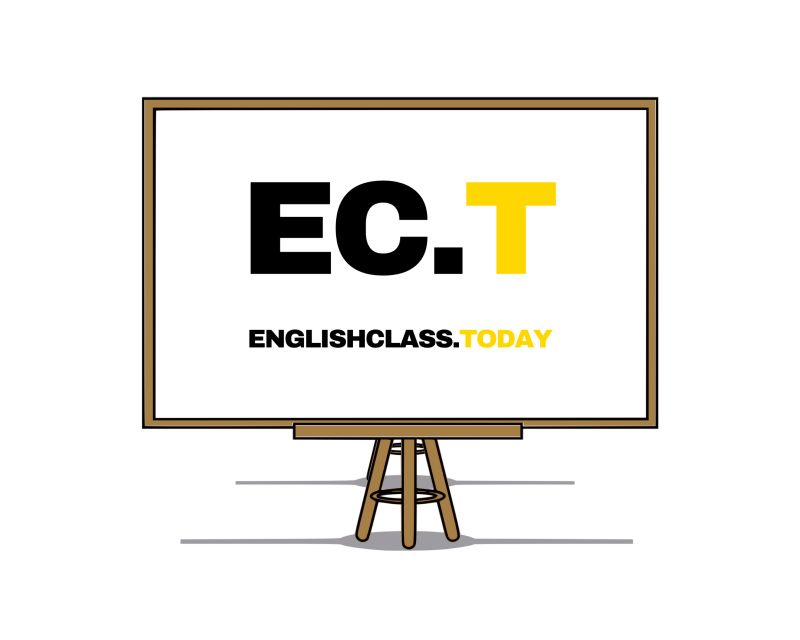
Did you enjoy this lesson? Support us to keep it free for everyone – click on the “Donate” button …
… or go to this page:
 Donate
Donate